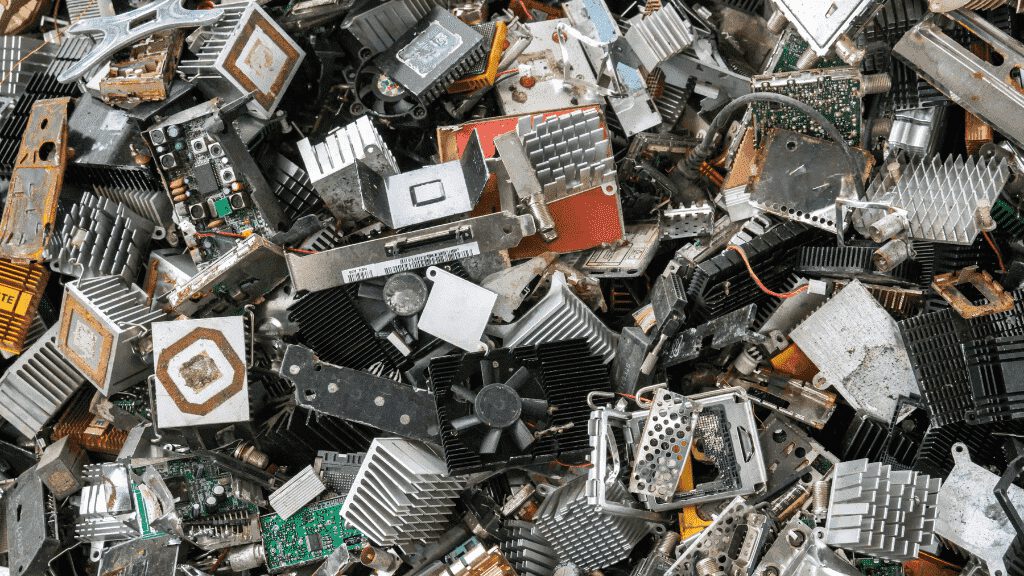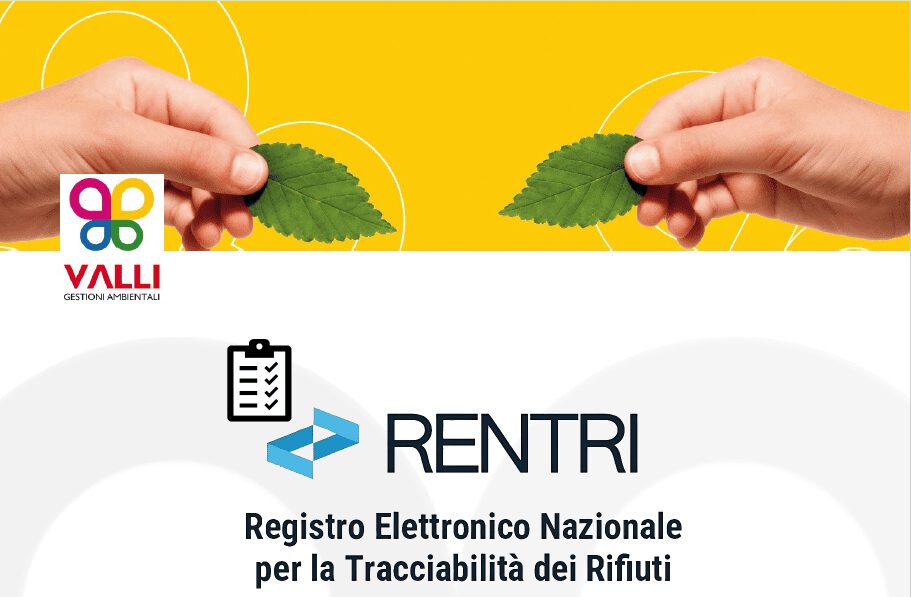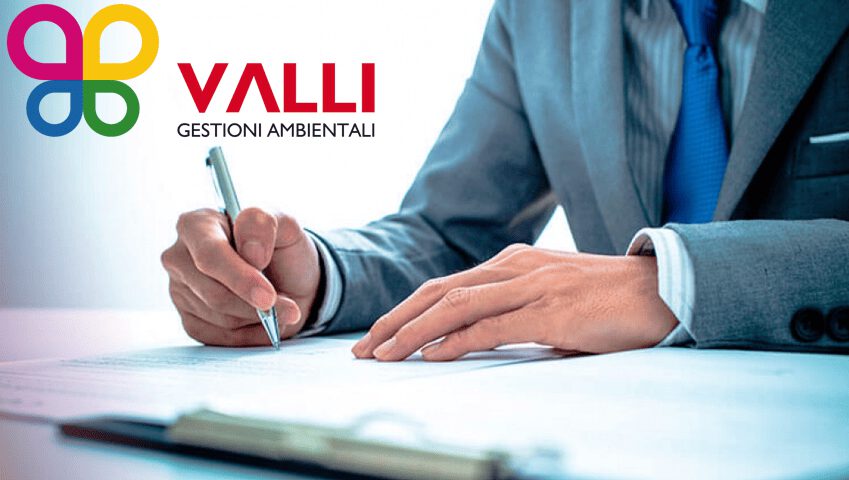In the digital age, the exponential increase in the use of electronic devices has led to a growing concern regarding their disposal at the end of their life. The disposal of electronic waste, or e-waste, represents an environmental, economic and health challenge of global importance. This article aims to provide a comprehensive overview of the topic, exploring the regulations in force, the environmental impact of e-waste and electronics recycling practices, with the aim of informing potential customers about the proper management of this waste.
WEEE Regulations
The management of Waste Electrical and Electronic Equipment (WEEE) is regulated by specific national and international regulations. These laws aim to prevent the generation of e-waste and promote recycling and reuse practices in a responsible and efficient manner.
European Directive 2012/19/EU: Establishes a regulatory framework for the collection, treatment and recycling of WEEE.
The European Directive 2012/19/EU, known as the WEEE (Waste Electrical and Electronic Equipment) Directive, represents a cornerstone in European legislation for the sustainable management of electronic waste. Adopted on 4 July 2012, this directive aims to prevent the generation of e-waste and to promote the reuse, recycling and other forms of recovery of such waste in order to reduce final disposal. The WEEE Directive is an update of the previous Directive 2002/96/EC, responding to the need for a more effective and efficient approach to e-waste management.
Main objectives
The main objectives of Directive 2012/19/EU include:
- Prevention: Reduce the amount of e-waste generated and encourage the reuse and repair of electronic equipment.
- Separate collection: Increase the separate collection of WEEE to avoid treatment and disposal with unsorted municipal waste and to facilitate recycling and recovery.
- Recycling and recovery targets: Set ambitious quantitative targets for recycling and recovery of e-waste, promoting the circular economy.
- Extended Producer Responsibility (REP): Manufacturers of electrical and electronic equipment are required to take care of the end-of-life of their products by financing the collection, treatment and recycling of waste generated by their products.
Categories of WEEE
The directive covers all electrical and electronic equipment divided into different categories, which include large and small household appliances, IT and telecommunications equipment, lighting equipment, monitoring and control instruments, toys, sports and leisure equipment, and vending machines.
Collection and Treatment
The directive requires member states to establish and maintain separate collection systems for WEEE, ensuring that citizens can return e-waste free of charge. Member States must also ensure that collected WEEE is treated according to specified environmental standards, including requirements for the removal of all hazardous substances and the recycling of materials.
Impact and Implementation
Since its entry into force, the WEEE Directive has pushed EU Member States to significantly improve their e-waste management infrastructure and policies. Collection and recycling targets have been progressively increased, promoting innovation in the recycling sector and contributing to the creation of a more circular and sustainable economy in Europe.
For implementation, each EU Member State had to transpose the Directive into its national law, adapting it to national specificities and needs, but always respecting the objectives and minimum requirements established at European level.
National legislation
Each EU member state adopts the directive within the framework of its own legislation, introducing specific rules and obligations for producers and consumers.
In Italy, the management of electronic waste is mainly regulated by Legislative Decree 49/2014, which implemented the European Directive 2012/19/EU on Waste Electrical and Electronic Equipment (WEEE). However, there are other rules and legislative provisions that supplement and further specify how WEEE is managed and disposed of. Below are some of the main Italian regulations that deal, directly or indirectly, with the management of electronic waste:
Ministerial Decree 65/2010
This decree establishes the technical criteria for the management of WEEE, including the collection, transport, treatment, recovery and disposal of electronic waste. It also specifies requirements for facilities that carry out such activities, ensuring that they are carried out in an environmentally friendly manner.
Legislative Decree 152/2006
Known as the “Environmental Code”, this body of legislation provides the general legislative framework for the management of all types of waste in Italy, including WEEE. It establishes fundamental principles such as the waste hierarchy, which prioritizes prevention, reuse, recycling and energy recovery, over disposal.
Law 221/2015
This law, also known as the “Environmental Link”, introduces additional measures for environmental protection, some of which impact the management of WEEE. For example, it promotes the circular economy and reinforces the principles of extended producer responsibility.
Regional Regulations
Italian regions can adopt their own regulations to further detail how waste is managed, including WEEE, within their territory. These regulations may cover specific aspects such as separate collection, the establishment of collection centres and partnerships with waste producers and managers.
UNI Technical Standards
UNI standards are voluntary standards that define technical specifications and good practices in various areas, including the management of WEEE. Although they are not laws, these regulations are often adopted by the industry to ensure high standards of quality and safety in the treatment of electronic waste.
This set of laws, laws and regulations forms a complex framework that aims to promote the proper management of electronic waste, protect the environment and public health, and foster the circular economy in Italy.
Producer Responsibility
Manufacturers of electronic equipment are responsible for managing waste from their products.
Extended Producer Responsibility (REP) is a key principle in both the European Directive 2012/19/EU on Waste Electrical and Electronic Equipment (WEEE) and many other environmental regulations globally. This principle requires manufacturers of electronic equipment to take responsibility for the entire life cycle of their products, in particular for the end-of-life phase, which includes the collection, treatment, recovery and disposal of waste from their products. The aim is to reduce the environmental impact of waste and promote the circular economy.
How REP Works
Extended producer responsibility translates into several practical obligations for producers:
- Registration and Reporting: Producers must register with a national competent authority and regularly report the quantities of products placed on the market, as well as the waste collected and treated.
- Financing of WEEE Management Systems: Producers are required to finance the collection, treatment and recycling of waste from their products. This can be done through the creation of collective or individual waste management systems, where costs are often covered through the eco-contribution paid by consumers at the time of purchase.
- Eco-friendly design: REP incentivizes manufacturers to design products so that they are more easily recyclable, reduce the use of hazardous substances, and increase the lifespan of products, contributing to waste prevention.
Separate collection systems
Consumers are encouraged to drop off their e-waste at designated collection points, facilitating the recycling process.
E-Waste
E-waste includes a wide range of discarded electronic products, from large household appliances to small gadgets. Inadequate management of this waste can have serious environmental and human health consequences, due to the toxic substances they can release into the environment.
The disposal process must therefore be carefully monitored and regulated, to minimize the negative impact. Recycling the valuable materials contained in e-waste not only reduces the need for the extraction of new raw materials but also contributes to the circularity of the economy.
Electronic Recycling
Electronics recycling proves to be a crucial component in the sustainable management of electronic waste. Through specialized processes, valuable materials such as gold, silver, copper, and plastic can be recovered, thus reducing the environmental impact associated with the extraction and production of new materials.
Advanced recycling technologies now make it possible to effectively treat a wide range of equipment, ensuring that recovered materials can be reintroduced into the production cycle. This approach not only conserves natural resources but also promotes a more sustainable and responsible economic model.
In conclusion, the disposal of e-waste requires a joint commitment of governments, companies and citizens. It is crucial to adopt and support efficient and responsible recycling practices to ensure a more sustainable future for our planet.
Choosing a professional waste disposal company offers numerous advantages both from an environmental and economic point of view, ensuring efficient and responsible waste management. Here are some of the main reasons why relying on professionals in the field can be an advantageous choice:
Legal Compliance
- Regulatory Compliance: Companies specializing in waste disposal are up-to-date on local, national and international regulations on waste. They ensure that disposal is carried out in full compliance with current laws, avoiding penalties or fines for client companies.
- Documentation: They handle all the necessary documentation, such as transport forms and disposal certificates, ensuring complete traceability of waste.
Environment
- Reduction of Environmental Impact: Professional companies adopt disposal and recycling methods that minimize the environmental impact of waste, contributing to the protection of the ecosystem.
- Promotion of the Circular Economy: They implement recycling and material recovery practices that favor the circular economy, reducing the need for natural resource extraction.
Efficiency and Professionalism
- Specialized Services: They offer customized services based on the specific needs of their customers, which can range from simple waste collections to complete waste management solutions.
- Advanced Technologies: They use state-of-the-art technologies for waste treatment and disposal, increasing the efficiency of the recycling process while reducing operating costs.
Safety
- Hazardous Waste Management: They have the expertise and equipment to safely manage hazardous waste, protecting public health and the environment from the potential risks associated with these materials.
- Risk Reduction: Minimizes waste management risks for businesses, including health and occupational safety.
Cost savings
- Cost Optimization: Efficiency in waste management can lead to significant savings on disposal costs, thanks in part to the reduction of waste destined for landfills through recycling and recovery practices.
- Added Value from Recycled Materials: Recovering materials from waste can generate an economic return, turning what would otherwise be waste into a resource.
Social Responsibility
- Corporate Image: Partnering with waste disposal companies that adopt sustainable practices improves a company’s public image, demonstrating a concrete commitment to sustainability and corporate social responsibility.
In conclusion, choosing a professional waste disposal company not only ensures safe, legal and efficient waste management but also contributes to environmental sustainability, the improvement of the corporate image and the reduction of operating costs, representing a strategic choice for any type of organization.
Discover the services of Valli Gestioni Ambientali
Relying on a professional waste disposal company such as Valli Gestioni Ambientali is a strategic choice that guarantees not only compliance with waste regulations, but also effective environmental protection thanks to cutting-edge disposal and recycling methods.
With specialized and customized services, Valli Gestioni Ambientali uses advanced technologies to safely and efficiently treat all types of waste, including hazardous waste, offering solutions that reduce environmental impact and promote the circular economy.
Collaborating with a reliable and competent partner such as Valli Gestioni Ambientali not only optimizes waste management costs, but also improves the public image of client companies, demonstrating a real commitment to sustainable and responsible practices. In summary, choosing Valli Gestioni Ambientali means investing in safety, efficiency and sustainability, actively contributing to the protection of the environment and public health, as well as to the implementation of waste management that looks to the future.




